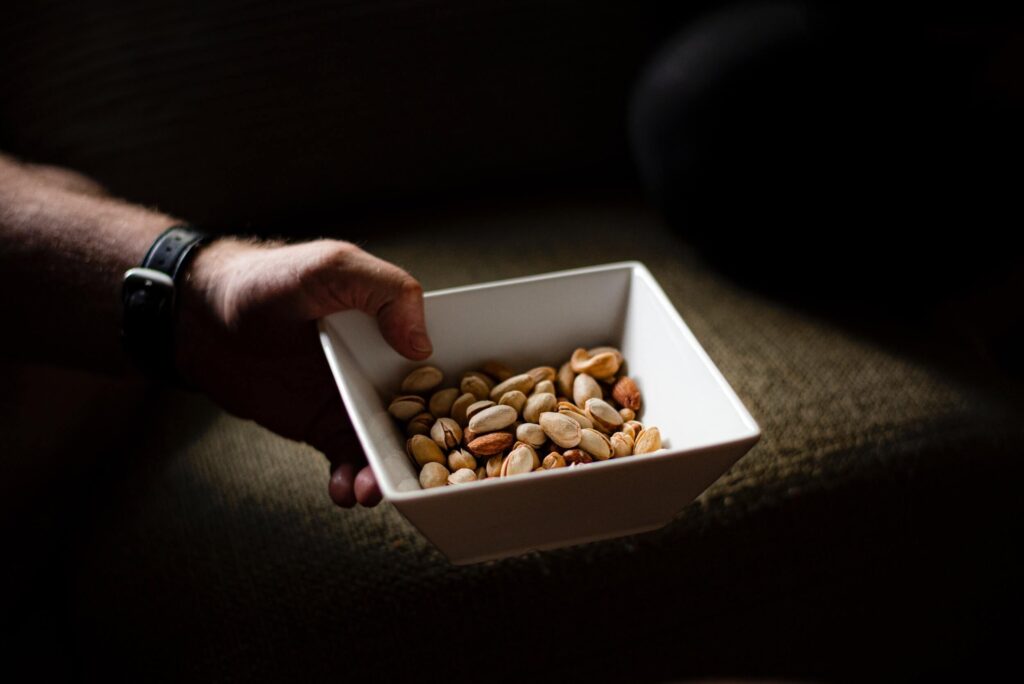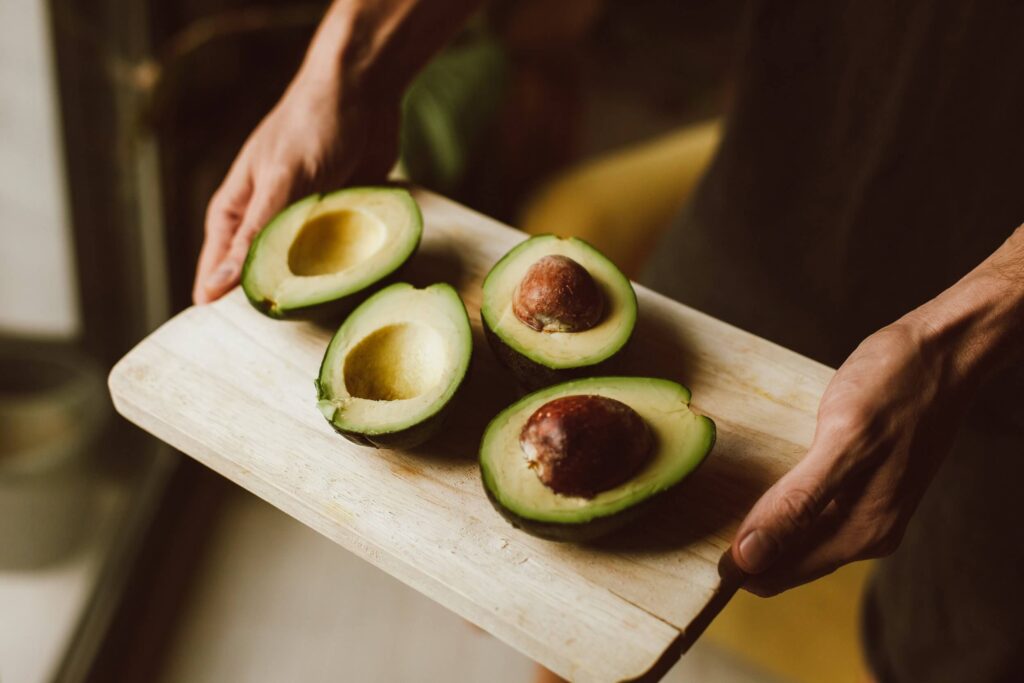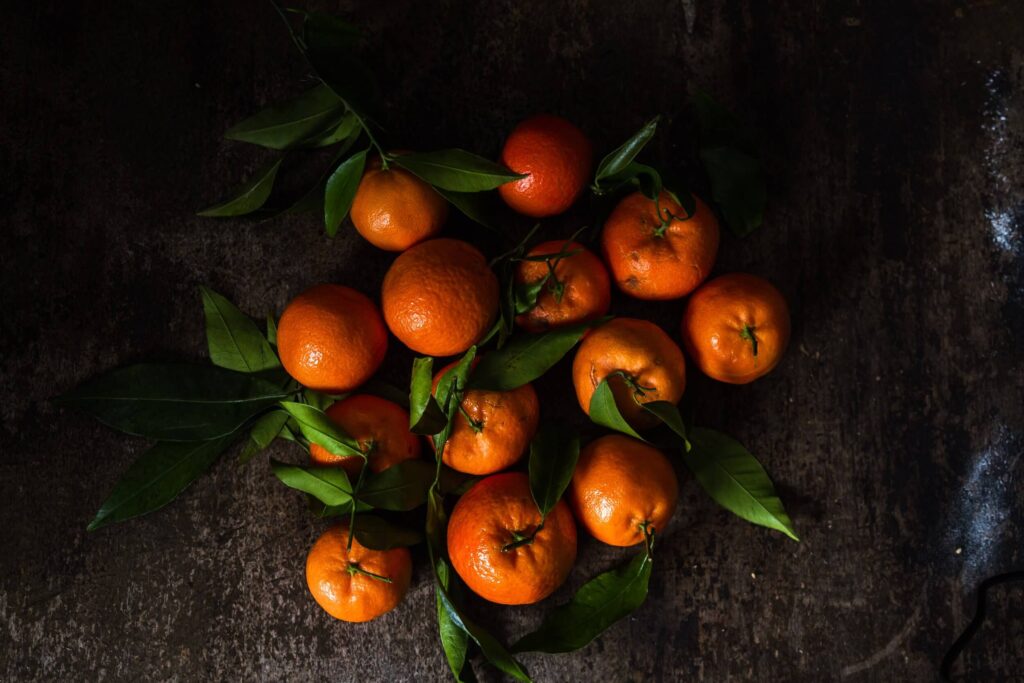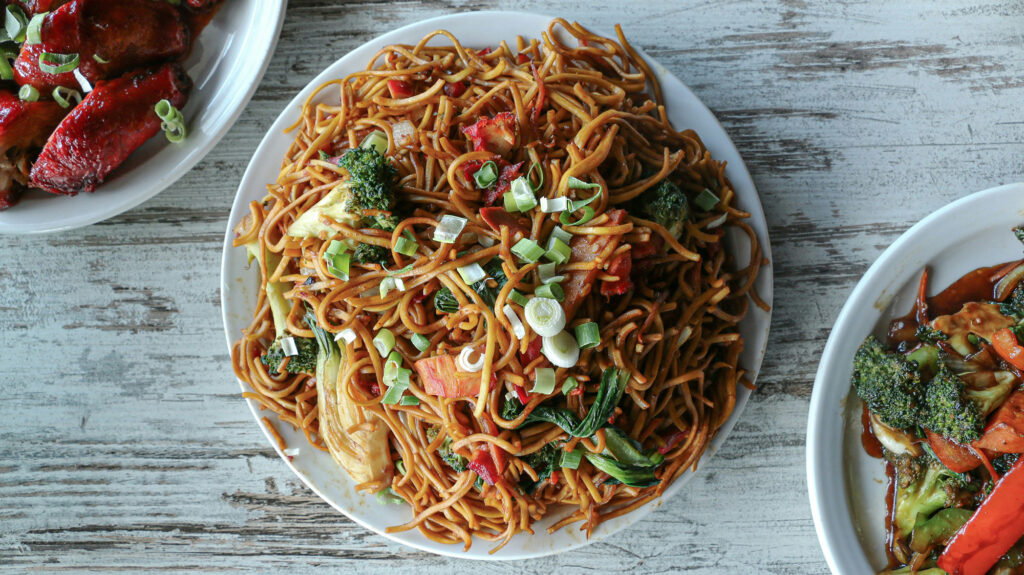When you’re stressed, the impulse can be to reach out for junk food loaded with carbs or sugar to make yourself feel better. A bag of chips or a box of cookies, when metabolised, releases dopamine, which is responsible for feelings of pleasure.
This behaviour is reinforced, causing us to repeat it time and again. Naturally, it isn’t the healthiest for our body. Research suggests that sugar can potentially worsen the negative feelings after the initial dopamine hit and make it harder to cope with symptoms of stress and anxiety.

Highlights
- The probiotics or the good bacteria in yoghurt minimise activity in the insula, the part of the brain that regulates emotion,
- Garlic is found to be high in the sulphur compound that helps increase levels of the antioxidant, glutathione. It is a part of the body’s first line of defence against stress,
- Eggs have tryptophan, an amino acid that helps create serotonin, which regulates memory, sleep, behaviour and mood.
Here’s a list of 10 healthier food options you could turn to when stressed out. These foods also help release ‘feel-good chemicals while lowering stress hormones.
Ten Healthy Foods That Relieve Stress
1. Nuts
Stress can dampen the body’s immune response by creating cortisol. This stress hormone suppresses the body’s ability to fight infections by lowering the number of lymphocytes in the blood. Pistachios, walnuts and almonds are high in vitamin E and zinc, both excellent for boosting the immune system.
They’re also a great source of vitamin B, which regulates serotonin and norepinephrine levels. These help to manage mental stability, mood and the ability to cope with stress. Nuts are also high in healthy fats, and eating them in moderate amounts is recommended.
2. Yoghurt and other prebiotics and probiotics
The brain regularly communicates with the gut through the gut-brain axis. It’s no surprise that stress manifests itself in gastrointestinal (GI) symptoms. Gut bacteria produce neurochemicals that the brain uses to regulate physiological and mental processes (mood, memory, learning, etc.). The gut bacteria produce about 95% of the body’s serotonin, which affects GI activity and mood. The probiotics or the good bacteria in yoghurt minimise activity in the insula, the part of the brain that regulates emotion.
Research suggests that it reduces stress levels. Yoghurt has calcium, protein, vitamin B-12, vitamin B-2, potassium, magnesium and riboflavin. Eating non-fat, low-fat or homemade yoghurt also helps work some calcium into the system, which helps with combatting stress.
When we are stressed, our bodies produce cortisol and go into fight-or-flight mode. Calcium from bones and teeth is released into our system to help neutralise the effects of cortisol, allowing us to recover from stress. Prebiotics like fructooligosaccharides (found in artichokes) can help minimise stress.
3. Dark chocolate
Research reveals that eating the equivalent of one average-sized dark chocolate candy bar (about 1.4 ounces) each day for two weeks reduced levels of cortisol, along with other fight-or-flight hormones—dopamine, norepinephrine and adrenaline—released in the body during physical or emotional stress.
4. Fatty fish
Fatty fish such as herring, salmon, sardines and mackerel are extremely rich in omega-3 fats and vitamin D, which are nutrients that improve mood and help reduce stress levels. Omega-3s, in particular, are essential for brain health and mood and to help your body handle stress. Low omega-3 intake is linked to increased depression and anxiety in Western populations. Vitamin D to plays an essential role in stress regulation and mental health.
5. Carrots
The crunch of the carrot itself is good for you in a way that you may not have considered before. When you eat something hard and chewy, it releases tension from the jaw. By possibly focusing on the act and sound of chewing, you’re able to come out of your stress spiral.

6. Banana and Avocado
Bananas have vitamins like folate, vitamin B and vitamin B-6. Vitamin B-6 helps with the production of serotonin, which improves mood and reduces anxiety. Topping bananas with almond, cashew or peanut butter adds to their stress-busting effect since nuts are rich in stress-countering vitamins and minerals like magnesium.
Avocados also contain Vitamin B-6 and niacin, a form of vitamin B3, which help the body produce neurotransmitters that induce a positive effect on the nervous system. Deficiencies of these vitamins can cause anxiety. A fun way to eat avocados is by blending them with ripe banana, almond milk and vanilla extract for a healthy smoothie.
7. Garlic
Garlic is found to be high in the sulphur compound that helps increase levels of glutathione. This particular antioxidant is part of the body’s first line of defence against stress. Studies on animals have suggested that garlic helps fight stress and considerably reduces symptoms of depression and anxiety. However, more research on humans is needed.
8. Citrus fruits
According to a study, people with high levels ofvitamins C and E were found to have significantly lower levels of anxiety compared to those who had lower levels of these vitamins. Citrus fruits like clementines, lemons, oranges and limes carry six out of the eight B vitamins that help to fight stress.
9. Foods high in fibre
Foods rich in fibre are gut-friendly and play an important role in lowering stress. Research indicates that a high-fibre diet contributes to lowered levels of anxiety and markers of depression and stress. Fibre helps fight oxidative stress and inflammation, two indicators of cancer, along with other health conditions. The gut–brain association is key in understanding the role of fibrous foods.
Gut bacteria generate short-chain fatty acids (SCFA) that are the primary source of nutrition for cells in the gut. High-fibre diets can stimulate the creation of small-chain fatty acids. A study conducted on mice found that SCFA can reduce stress levels. Beans, green peas, berries, almonds, flaxseeds, pistachios and greens, like kale and broccoli, contain a good amount of fibre.
10. Eggs
Egg yolks are considered a great source of vitamin D, among other essential nutrients. A 2013 meta-analysis noticed that participants with depression also had low vitamin D levels. Statistically, people with low Vitamin D are at much higher risk of depression, according to the same analysis. A 2005 study observed that vitamin D receptions are in the areas of the brain directly linked to depression.
Eggs also contain protein, meaning that they have all the essential amino acids needed for growth and development. Eggs even have tryptophan, an amino acid that helps create serotonin, which regulates memory, sleep, behaviour and mood. Serotonin is also said to relieve anxiety and improve brain function.
Conclusion
Stress is a part of life. In some ways, stress prepares the body to respond to situations in time and stay alert for danger. However, when consistent bouts of stress lead to stressful or emotional eating, it can play havoc with both the gut and emotions. Instead of loading up on empty carbs present in candy and chips, it’s better to turn to healthier alternatives of stress-busting foods.
Nuts have antioxidants like vitamin E and zinc, which are good for boosting the immune system, as well as vitamin B, which helps the body manage stress. Yoghurt contains good bacteria that help support gut health and better moods. Dark chocolate helps reduce cortisol, the hormone secreted when the body’s under duress.
Fatty fish including omega-3s have an anti-inflammatory effect and help fight depression. Carrots help you fight stress. Vitamin B in bananas helps with the production of serotonin, which helps lift mood and regulate emotions.
Whole grains boost serotonin levels. Citrus fruits containing vitamins C and E are also found to lower levels of anxiety. Foods high in fibre support digestive health, and good gut health leads to better brain health. The vitamin D present in eggs also helps fight depression and anxiety.
Disclaimer: The contents of this article are for general information and educational purposes only. It neither provides any medical advice nor intends to substitute professional medical opinion on the treatment, diagnosis, prevention or alleviation of any disease, disorder or disability. Always consult with your doctor or qualified healthcare professional about your health condition and/or concerns and before undertaking a new health care regimen including making any dietary or lifestyle changes.
References
- https://www.webmd.com/balance/stress-management/news/20091113/dark-chocolate-takes-bite-out-of-stress
- https://www.health.harvard.edu/blog/omega-3-fatty-acids-for-mood-disorders-2018080314414
- https://www.ncbi.nlm.nih.gov/pubmed/29985786
- https://www.ncbi.nlm.nih.gov/pmc/articles/PMC2990475/
- http://www.ncbi.nlm.nih.gov/pubmed/15589699








